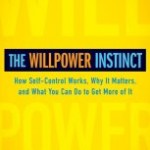 I just finished a wonderful book (audio format for me) entitled The Willpower Instinct: How Self-Control Works, Why It Matters, and What You Can Do to Get More of It by Dr. Kelly McGonigal, who is a professor of health psychology at Stanford University. Among the many great insights that I gleaned from this book, one is an area that I discussed in a previous blog about self-compassion. As it happens, it is also relevant to keeping those New Year’s Resolutions. Hey, it’s not too late to get back on that horse if you’ve fallen off!
I just finished a wonderful book (audio format for me) entitled The Willpower Instinct: How Self-Control Works, Why It Matters, and What You Can Do to Get More of It by Dr. Kelly McGonigal, who is a professor of health psychology at Stanford University. Among the many great insights that I gleaned from this book, one is an area that I discussed in a previous blog about self-compassion. As it happens, it is also relevant to keeping those New Year’s Resolutions. Hey, it’s not too late to get back on that horse if you’ve fallen off!
Oftentimes when we our willpower comes up a bit short and we don’t follow through with an I Will (e.g., I will exercise daily) or I Won’t (I won’t have a dessert after dinner) power challenge, we kick ourselves. In fact, you might be kicking yourself right now for not sticking with your New Year’s Resolutions!
Here’s the thing about beating ourselves up about our inevitable mistakes, shortcomings, and willpower failures: self-denigration makes it MORE likely that we will make those mistakes and NOT less likely. Let’s take an example of someone who is trying to eat healthier because he is a “stress” eater. Let’s call him Bill. Bill has a history of eating junk food to cope with stress. Although it might feel good in the moment, Bill has come to realize that the stress eating is causing him to gain weight, experience health problems, and feel worse about himself. Bill makes a New Year’s Resolution to cut out junk food for 6 days per week (allowing one day off actually makes it more likely he will stick with such a plan). Now Bill gets very stressed out about work and, instead of going to the gym or using some other positive coping mechanisms, he has three days during the week in which he indulges in fast food.
Bill feels incredibly guilty about this slip-up. He tells himself negative messages such as, “You are such a loser. You have no willpower. You will never be able to lose weight and keep it off.” What effect does this have on Bill? He feels worse. In effect, this denigrating self- talk beats him down and causes more stress. Ultimately, because he is feeling so low, he is more inclined to reach out for one of his stand-by self-soothing behaviors: eating junk food. Thus, Bill has fallen off his healthier eating wagon and is now caught up in a viscous cycle of stress eating and self-denigration.
As I discussed in my previous blog on self-compassion, Bill should judge the action (e.g., “Oops! I slipped up there! That’s not sticking with my goal of eating healthy 6 out of 7 days of the week.”) but NOT himself (e.g., “I’m a bad person for not sticking with my goal.”). There is a huge difference here. Self-denigration undermines our goals. By viewing ourselves as “losers” or other such negative terms, why bother trying? It assigns an identity to who we are and thus what we can expect from ourselves (i.e., losers lose). In contrast, focusing on the particular aspects of our slip-ups and shortcomings can empower us because it is situational, which we can address, and not who we are.
And, as Dr. McGonigal shows in The Willpower Instinct, self-denigration drains our willpower, which then leads to more willpower failures.
So, if you have slipped up on your New Year’s Resolutions, don’t beat yourself up about it. Show some self-compassion. If your friend Emily told you that she slipped up on her resolution, would you call her a loser? Of course not! You deserve the same compassion that you would show your friends and loved ones. Heck, we are often more compassionate toward complete strangers than we are to ourselves! By being forgiving of our own mistakes, we give ourselves the grace and willpower to get back on the horse again and achieve our goals.
